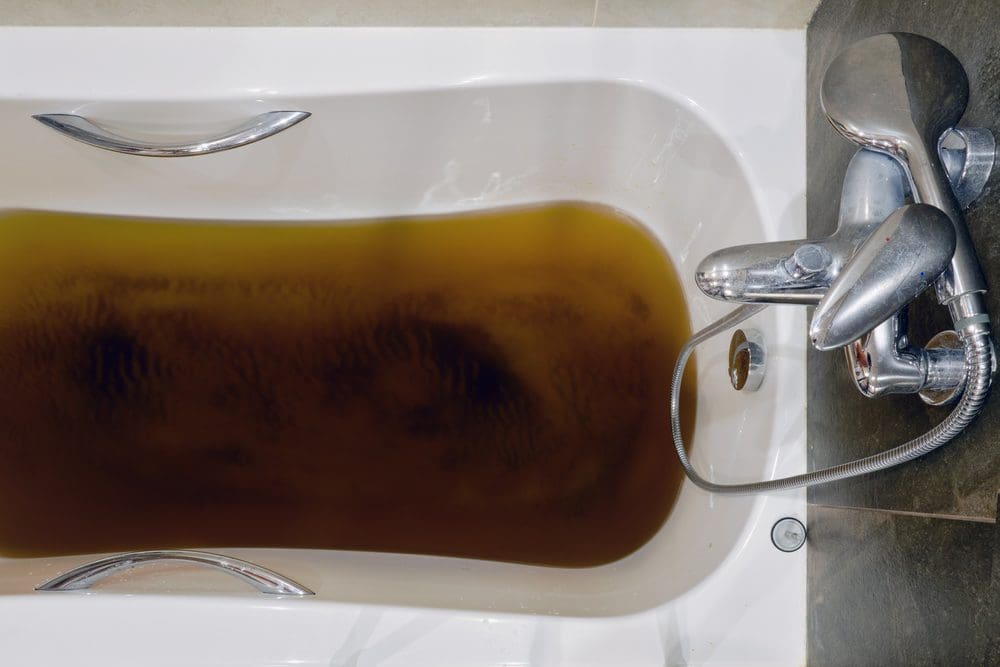Untangling the Mystery of Drainage in the Bathtub
Untangling the Mystery of Drainage in the Bathtub
Blog Article
What are your ideas regarding What to Do if Sewage Starts Coming Up Through Your Bathtub?

Sewage back-up in the tub can be a traumatic and unsanitary issue for any type of home owner. Not just is it inconvenient, yet it additionally postures serious wellness threats and shows underlying problems with the plumbing system. Comprehending why sewage is coming up via the bath tub is critical for taking ideal action to deal with the issue successfully.
Intro to the Concern
Understanding the Trouble
When sewage starts backing up right into the bathtub, it's a clear sign of an issue with the water drainage system. The wastewater that must be streaming far from your home is rather locating its back right into your home, which can cause considerable damages and health hazards.
Prospective Reasons
A number of elements can contribute to sewage backup in the bath tub. From obstructions in the sewage system line to problems with the plumbing facilities, recognizing the source is crucial for finding an option.
Typical Reasons for Sewage Backup
Clogs in the Sewage System Line
Among the most common causes of sewage backup is an obstruction in the sewage system line. This can take place due to the accumulation of debris, grease, or international things in the pipelines, preventing appropriate circulation and creating sewer to support into your bath tub.
Tree Root Invasion
Tree roots seeking dampness and nutrients can infiltrate sewage system lines through little fractures or joints. In time, these origins can grow and expand, triggering significant damages to the pipelines and resulting in sewage back-up issues.
Aging Facilities
Older homes may have outdated plumbing systems that are a lot more prone to rust, cracks, and damage. As pipes age, they become extra susceptible to leakages and clogs, increasing the possibility of sewage backup events.
Heavy Rainfall or Flooding
Throughout durations of heavy rainfall or flooding, the sewer system might end up being overloaded with excess water, creating backups and overflows. This can result in sewer backing up into tubs and various other fixtures inside the home.
Health Risks Related To Sewage Backup
Contamination of Water Supply
Sewer backup can pollute the water supply in your house, posing a severe health threat to you and your family members. Direct exposure to infected water can lead to intestinal issues, skin infections, and other illnesses.
Spread of Disease
Sewage includes harmful germs, infections, and bloodsuckers that can create a series of conditions, consisting of hepatitis, cholera, and gastroenteritis. Entering into contact with sewage or polluted surfaces puts you in danger of infection.
Mold and mildew Development
Moisture from sewage backup can produce excellent conditions for mold and mildew growth in your house. Mold spores can aggravate respiratory system issues and trigger allergic reactions in delicate individuals, making prompt cleaning essential.
Indicators of Sewage Back-up
Foul Odors
Undesirable odors originating from drains or components, especially in the shower room, may indicate sewage back-up concerns. These odors are frequently solid and relentless, indicating a trouble that needs instant interest.
Slow Draining Fixtures
Tubs, sinks, and toilets that drain gradually or not in any way could be experiencing sewer backup. If multiple components are affected at the same time, it's likely that the concern originates from an usual point, such as the primary sewage system line.
Gurgling Noises
Strange gurgling or bubbling sounds originating from drains when water is running somewhere else in your house are indicative of air entraped in the plumbing system. This air buildup can result from sewer backup and should be investigated immediately.
Immediate Actions to Take
Switching Off Water System
In the event of sewer backup, it's necessary to turn off the water to avoid more contamination and damages. Situate the major water shutoff valve in your home and closed it off up until the problem can be fixed.
Calling an Expert Plumber
Dealing with sewer backup is not a do it yourself task. Call an accredited plumber with experience in dealing with sewage-related concerns to evaluate the scenario and carry out needed repairs or clean-ups.
Avoiding Contact with Infected Water
Until the sewer backup is resolved, prevent contact with infected water to prevent the spread of germs and virus. Put on protective equipment if you need to remain in the affected area and wash your hands thoroughly afterward.
Preventive Measures
Regular Maintenance of Sewer Lines
Arrange normal evaluations and maintenance of your sewage system lines to determine and deal with prospective issues prior to they rise into significant issues. This can include clearing out debris, examining for tree root invasion, and repairing any kind of damaged pipelines.
Setting Up Backwater Shutoffs
Consider mounting bayou shutoffs in your plumbing system to prevent sewer from receding into your home during durations of heavy rainfall or flooding. These valves immediately close when water draws back up, safeguarding your residential or commercial property from contamination.
Proper Disposal of House Waste
Stay clear of purging anything aside from toilet paper and human waste down the toilet to stop blockages and blockages in the sewer line. Dispose of oil, oil, and other family chemicals effectively to lessen the threat of plumbing troubles.
Tidying up After Sewer Backup
Sanitation Procedures
Extensively decontaminate and sterilize impacted locations after sewage backup to get rid of damaging microorganisms and avoid mold development. Usage appropriate cleaning items and safety equipment to make sure safe and efficient clean-up.
Remediation of Influenced Areas
Repair any kind of damage to flooring, walls, or components brought on by sewer backup. Depending on the extent of the damage, you may need to replace carpeting, drywall, or other materials to recover your home to its pre-loss problem.
Why Is Water Backing Up in My Bathtub When I Flush My Toilet?
What to do about a sewer line clog
First, don’t bother with plunging. No amount of plunging will dislodge the clog in a sewer line. The clog is too far away. Plungers are for clogs in the toilet itself, not the sewer line. Plus, the most likely causes of a sewer clog are:
Tree roots Flushed toys or feminine products Grease buildup Those items don’t move easily. And in the case of tree roots, the roots need to be cut out of the pipe and the pipe will need to be repaired.
You’ll need a closet auger. A closet auger is a type of plumber’s snake with a protective cover to keep from scratching the delicate porcelain toilet. If the clog is further down, you may need to remove the toilet or use one of your cleanouts to get to the clog.
We also recommend doing a video inspection of the drain to ensure that the cause of the clog has been completely removed. Otherwise, you could have the same problem again in a few days or weeks.
https://mspplumbingheatingair.com/blog/why-is-water-backing-up-in-my-bathtub-when-i-flush-my-toilet

I came across that piece of writing about Why is There Sewage Coming Up Through the Bathtub when doing a lookup on the web. Please pause to promote this article if you enjoyed reading it. We thank you for reading our article about What To Do If Sewage Starts Backing Up Into the Shower.
Get A Quote
Report this page